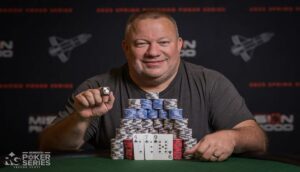Welcome to PlayPA‘s occasional Slack chat on topics in the online gambling world, with insight from Jessica Welman, Chris Grove, Dustin Gouker and Steve Ruddock.
This week we focus on all the news around regulation of online gambling in the state.
dustin: So, we’re now seeing the rubber meet the road for Pennsylvania online casinos. Current licensees can petition for an online gambling certificate now. Platform and game providers are on deck.
Here’s the problem: Pennsylvania is choosing to ignore just about all of the lessons from the extremely successful NJ online casino industry. What’s the biggest problem we’ve seen come out of regulations so far?
jess: I think the first issue about skins was one the average PA person could understand. How it works, why it is an issue. In layman’s terms, what is the major issue that is holding up skins now?
chris: Just a ton of ambiguity in the law itself and in the temporary regulations that have been issued (and sort-of-clarified) in the last few weeks. There are a number of ways you can read it all, so the end result is no one is totally clear on how skins are going to work.
What we do know is that there will be some ability for the key license holders to offer skins. We also know that there will need to be a closer connection between the skin and the license holder than we see in New Jersey. Otherwise, it feels like a lot is still up in the air.
How online gambling accounts will work for users
jess: With that, I know some people don’t love the separated accounts. From a customer perspective though, doesn’t having a single account for multiple skins seem like a good thing on the surface?
chris: Customers would probably love just having one sign on for every online gambling site in the world (I would, anyhow). The issues come in when you start thinking about how to regulate that (Pennsylvania would be doing a lot of work from scratch).
Then you also have real questions about who “owns” the customer. If a skin feels like they’re just renting a customer from the license holder, there’s not going to be a lot of incentive to invest in marketing or product (or maybe even to operate a skin in the first place).
Finally, there are some legitimate questions about account security and privacy. If a player’s sensitive data has to keep getting bounced back and forth between the license holder and the skin, that’s a lot of additional exposure for the player.
jess: So the idea isn’t really the problem, it is in the execution?
chris: I think it’s both. There are definitely problems with execution, but the idea of a customer having a “master account” across other sites is one with its own inherent pitfalls.
Gobbledygook for PA regulations?
steve: I think the commentary so far is pretty spot on. As Chris pointed out, the PGCB has taken two cracks at setting the requirements for skins (temporary regulations followed by an explanatory package), but it has yet to speak plainly and decisively on the matter. All we’ve gotten is two rounds of gobbledygook, creating something gaming companies avoid like the plague… uncertainty.
Unless skins have a great deal of autonomy when it comes to the promotions and rewards programs they can offer, there are scant few reasons for a customer to sign up and play at a skin instead of the main license holder, who just so happens get free advertising from every one of their skins thanks to the brand association requirements.
New Jersey and other markets around the globe have shown that you lose customers with each additional step in the registration process. The same rationale can likely be applied to skins in Pennsylvania. Why is a customer going to click through to a subpage to download the same software that they’re being prompted to download on the main page?
These regulations can be interpreted multiple ways. But a hardliner reading is the equivalent of someone walking into a pizza parlor that has a door to a nearly identical pizza parlor inside it. In fact, the second pizza parlor clearly states its pizza is made by the pizza parlor the customer is currently standing in. So why are they going to walk the additional 300 feet?
dustin: Now I want a pizza. What about the account stuff?
steve: The so-called “master account” is an even bigger head-scratcher.
If it works like we think it works (and who knows if that’s the case), who does own the customer that signs up at landbasedcasino.com but now plays almost exclusively on skinnumberone.com?
At the end of the day, I’d like to know why the PGCB has decided to create a radical new, untested skin model.
Economic impact for PA online casinos?
dustin: As Steve has written before and Chris has opined, we have a totally viable and successful market operating in New Jersey. Why Pennsylvania is trying to reinvent the wheel is a mystery. Well, it’s probably not a mystery, we know some casino operators (ahem Parx and Hollywood Penn National) have been trying to limit how skins can operate for a while.
This seems pretty self-defeating for them, and for the regulators trying to create both a safe and successful market. Anyway, with everything we’ve seen, in a worst case, how much impact do we think all of this could have on PA online casinos’ ceiling from a potential revenue standpoint?
steve: I have little doubt it will negatively impact the market. How much really depends on the official policy that is hopefully coming in short order. Even if the PGCB softens on some of the requirements, companies that would have shown interest in PA will stay out of the state. More worrisome, if PA does take a hardline approach, we may not see any skins at all, and that would be bad for land-based operators, consumers and the state.
chris: I think the tax rate is going to have a bigger impact. But the one-two of the high tax rate and no skins has an impact that is greater than the sum of its parts. Skins are a way for license holders to distribute some of the risk that the high tax rate brings. In the absence of that hedge, license holders may well end up being more cautious with their own product and marketing investments, which is a clear negative for the state.
I don’t think there’s any doubt that Pennsylvania is setting itself up to perform below New Jersey on a per capita basis.
Can tax rates be fixed?
jess: Chris mentioned the tax rates. We all observed how high and problematic they were in October when the bill passed, but I know several people held out hope that the state would come around on tax rates. Given what is going on with skins, is a change in tax rates just a pipe dream at this point?
dustin: Seems pretty unlikely we’re gonna see the legislature go into the tax rates until they see some sort of evidence that they are holding back the market. It took years to even get an online gambling law on the books, so expecting them to lower the tax rate before the industry even starts is pretty unlikely.
And even in the near term, they would have to be presented with overwhelming evidence that the tax rate is holding things back. Might that evidence manifest itself quickly? Sure. But counting on a lower tax rate any time soon is difficult to see.
jess: Thinking ahead though, at what point do all of these decisions negatively impact the industry to the point it is considered a failure? Are we still really far out from that?
dustin: Until the rubber actually meets the road and we have casinos saying they are offering online gambling/poker, and then the market actually rolls out, it’s going to be a bit hard to say. I don’t know if all of this will lead to it being called a “failure” but it’s certainly not going to reach its potential.
jess: And correct me if I am wrong, but there are two issues we are talking about here that could negatively impact PA participation. The first is the tax rate, which might be considered too high for some properties to enter the market.
The second is that these convoluted skins laws are going to potentially deter outside participants from getting into PA as a skin?
steve: The tax rate won’t be touched in the near-term. The most obvious reason is that PA is starting from $0 in online gaming revenue, so any revenue is going to be welcome. Second, it took NJ online operators a year to really gets their feet under them, so I doubt the PA legislature will look at the revenue coming in 12 months from now and hit the panic button.
And we shouldn’t lose sight of the fact that PA was told the same thing 15 years ago when it imposed a 54 percent tax on land-based slots. Despite the high rate, in the ensuing years, it’s become the second largest gaming market in terms of revenue.
The post What The Heck Is Pennsylvania Doing When It Comes To Online Casino Regulation? appeared first on Play Pennsylvania.






